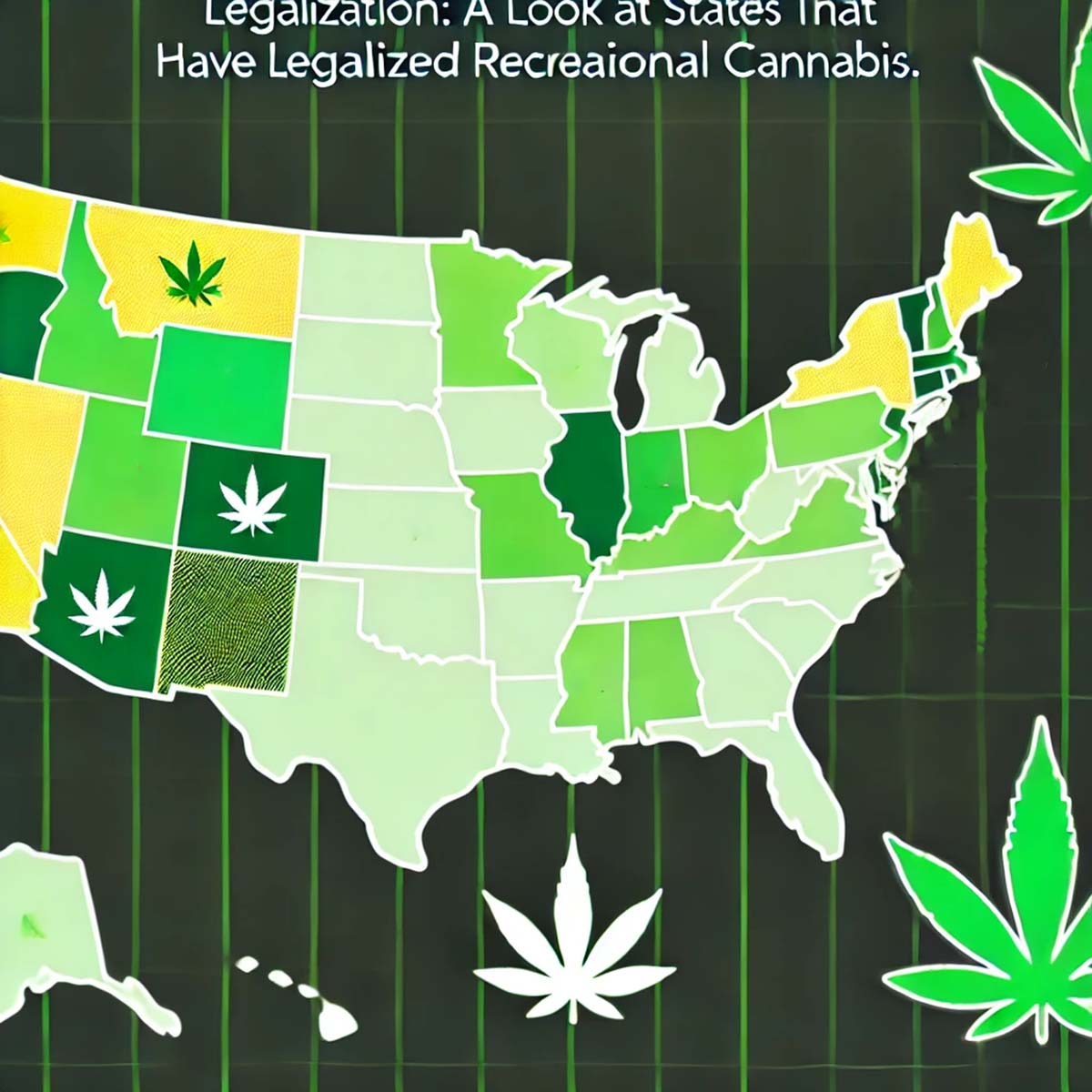The movement to legalize recreational cannabis in the United States has gained significant momentum over the past decade. What started as a grassroots effort has blossomed into a widespread policy change, with numerous states embracing legalization. This blog takes a closer look at the states that have legalized recreational cannabis, exploring the journey to legalization, the current legal landscape, and the impact on society.
The Journey to Legalization
The journey to legalizing recreational cannabis in the United States has been a complex and evolving process. It began with the legalization of medical cannabis in various states, which laid the groundwork for broader acceptance and understanding of cannabis use. The shift towards recreational legalization can be attributed to several factors:
- Changing Public Opinion: Increasing public support for cannabis legalization, driven by greater awareness of its potential benefits and the failures of prohibition, has played a crucial role.
- Economic Considerations: The potential for significant tax revenue and job creation has motivated many states to reconsider their stance on cannabis.
- Social Justice: The recognition of the disproportionate impact of cannabis prohibition on minority communities has fueled efforts to address these injustices through legalization and expungement of past convictions.
States That Have Legalized Recreational Cannabis
As of now, a growing number of states have legalized recreational cannabis. Each state has its regulatory framework, addressing aspects such as age limits, possession limits, cultivation, and distribution. Here is a look at some of the states that have embraced recreational cannabis:
- Colorado:
- Legalization Date: November 2012
- Details: Colorado was one of the first states to legalize recreational cannabis with the passage of Amendment 64. Adults 21 and older can possess up to one ounce of cannabis and grow up to six plants for personal use.
- Impact: The state has seen significant tax revenue from cannabis sales, funding education and public health initiatives.
- Washington:
- Legalization Date: November 2012
- Details: Washington also legalized recreational cannabis in 2012 with Initiative 502. The law allows adults 21 and older to possess up to one ounce of cannabis.
- Impact: Washington has implemented strict regulations to ensure product safety and reduce illegal market activities.
- Oregon:
- Legalization Date: November 2014
- Details: Measure 91 legalized recreational cannabis in Oregon, allowing adults 21 and older to possess up to one ounce in public and up to eight ounces at home.
- Impact: Oregon’s cannabis industry has created jobs and generated substantial tax revenue.
- California:
- Legalization Date: November 2016
- Details: Proposition 64 legalized recreational cannabis in California. Adults 21 and older can possess up to one ounce of cannabis and grow up to six plants.
- Impact: California’s cannabis market is the largest in the United States, contributing significantly to the state’s economy.
- Nevada:
- Legalization Date: November 2016
- Details: Nevada legalized recreational cannabis with Question 2. Adults 21 and older can possess up to one ounce of cannabis and grow up to six plants in certain conditions.
- Impact: Cannabis tourism has boosted Nevada’s economy, particularly in Las Vegas.
- Massachusetts:
- Legalization Date: November 2016
- Details: Question 4 legalized recreational cannabis in Massachusetts. Adults 21 and older can possess up to one ounce in public and up to ten ounces at home.
- Impact: Massachusetts has focused on social equity programs to support communities disproportionately affected by prohibition.
- Alaska:
- Legalization Date: November 2014
- Details: Measure 2 legalized recreational cannabis in Alaska. Adults 21 and older can possess up to one ounce of cannabis and grow up to six plants.
- Impact: Alaska’s cannabis market supports local businesses and generates tax revenue for the state.
- Maine:
- Legalization Date: November 2016
- Details: Question 1 legalized recreational cannabis in Maine. Adults 21 and older can possess up to 2.5 ounces of cannabis and grow up to six plants.
- Impact: Maine has implemented a robust regulatory system to ensure safe and legal cannabis sales.
- Michigan:
- Legalization Date: November 2018
- Details: Proposal 1 legalized recreational cannabis in Michigan. Adults 21 and older can possess up to 2.5 ounces in public and up to ten ounces at home.
- Impact: Michigan’s cannabis industry has seen rapid growth, creating jobs and generating tax revenue.
- Illinois:
- Legalization Date: January 2020
- Details: Illinois legalized recreational cannabis with the Cannabis Regulation and Tax Act. Adults 21 and older can possess up to 30 grams of cannabis.
- Impact: Illinois has focused on social equity and expunging past cannabis convictions as part of its legalization efforts.
The Impact of Legalization
The legalization of recreational cannabis has had profound impacts on various states, including:
- Economic Growth: Legal cannabis markets have generated significant tax revenue, funding public services, education, and infrastructure projects. The industry has also created numerous jobs, from cultivation to retail.
- Social Justice: Legalization efforts often include measures to expunge past cannabis convictions and promote social equity, addressing the disproportionate impact of prohibition on minority communities.
- Public Health and Safety: Legalization allows for the regulation and testing of cannabis products, ensuring consumer safety. It also reduces the burden on law enforcement and the judicial system, allowing resources to be redirected to more pressing issues.
- Challenges: States face challenges such as balancing regulation and market growth, preventing youth access, and addressing public health concerns related to increased cannabis use.
Conclusion
The movement towards the legalization of recreational cannabis in the United States reflects changing attitudes and recognition of its potential benefits. As more states embrace legalization, the landscape continues to evolve, bringing economic opportunities, social justice reforms, and regulatory challenges. Understanding the journey and current status of cannabis legalization provides valuable insights into its impact on society and the future of cannabis policy in the United States.



